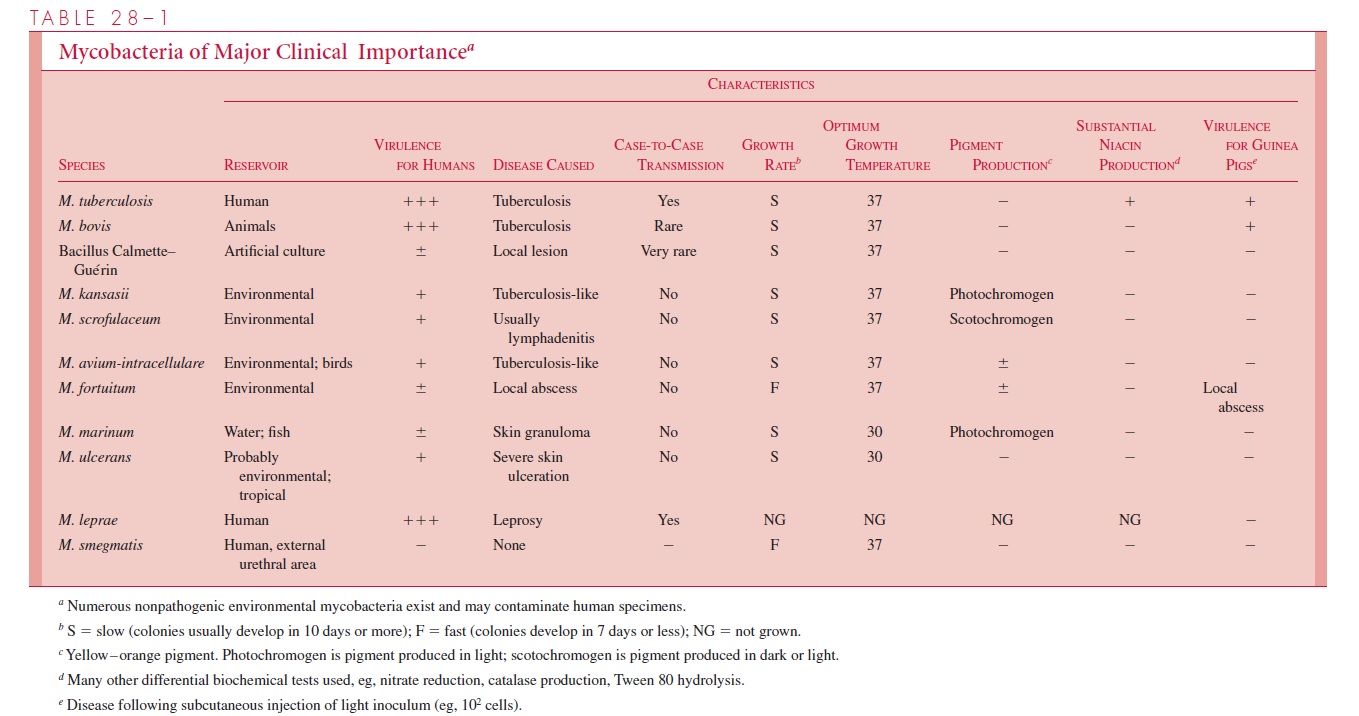Chapter: Medical Microbiology: An Introduction to Infectious Diseases: Mycobacteria
Mycobacterial Soft Tissue Infections
MYCOBACTERIAL SOFT TISSUE INFECTIONS
Mycobacterium fortuitum Complex
Mycobacterium fortuitum complex comprises free-living, rapidly growing, acid-fast bacilli that produce colonies within 3 days. Human infections are rare. Abscesses at injec- tion sites in drug abusers are probably the most common lesions. Occasional secondary pulmonary infections develop. Some cases have been associated with implantation of for- eign material (eg, breast prostheses, artificial heart valves). Except in the case of endo- carditis, infections usually resolve spontaneously with removal of the prosthetic device.
Mycobacterium marinum
Mycobacterium marinum causes tuberculosis in fish, is widely present in fresh and salt waters, and grows at 30°C but not at 37°C. It occurs in considerable numbers in the slime that
forms on rocks or on rough walls of swimming pools and thrives in tropical fish aquariums. It can cause skin lesions in humans. Classically, a swimmer who abrades his or her elbows or forearms climbing out of a pool develops a superficial granulomatous lesion that finally ulcerates. It usually heals spontaneously after a few weeks but is sometimes chronic. The organism may be sensitive to tetracyclines as well as to some antituberculous drugs.
Mycobacterium ulcerans
Mycobacterium ulcerans is a much more serious cause of superficial infection. (Like M. marinum, M. ulcerans grows at 30°C but not at 37°C [see Table 28–1].) Cases usually occur in the tropics, most often in parts of Africa, New Guinea, and northern Australia, but have been seen elsewhere sporadically. Children are most often affected. The source of infection and mode of transmission are unknown. Infected individuals develop severe ulceration involving the skin and subcutaneous tissue that is often progressive unless treated effectively. Surgical excision and grafting are usually needed. Antimicrobic treat-ment is often unsuccessful.

Related Topics